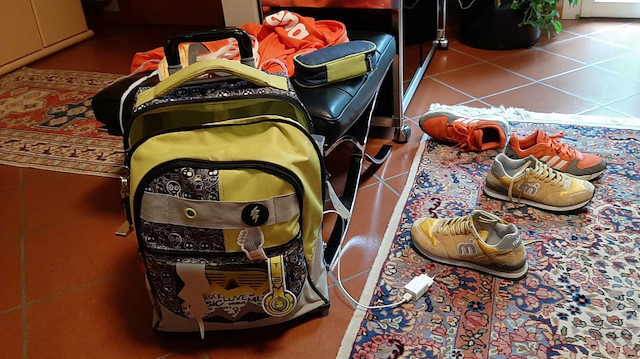
TESTING
Some 95% of the 32,700 people who have died of the disease so far in Italy have been aged 60 or over, the national health institute says, underscoring the enormous vulnerability of the elderly.
Children appear to get infected less than adults, and most of those who do, display mild symptoms, if any. But their role in spreading the illness is still under debate.
A recent review of family clusters of COVID-19 found that children were the initial source of infection in less than 10% of cases. The study, produced by the University of Queensland and posted on the SSRN preprint platform in April, has been submitted to The Lancet medical journal but has not yet been peer reviewed.
In the absence of clarity and while the world awaits a vaccine, some families are looking to advances in testing to help reassure them.
When Italy imposed its lockdown in March, Gianni Reffo's daughter and granddaughter moved in with him and his wife Valentina. That way, the mother Rossella could still work while they took care of the 9-year-old girl.
Rossella and her daughter have now returned to their own home and as a result Reffo, a retired nuclear physicist, and his wife have decided to only see the pair in their garden rather than in closed spaces to limit the chance of infection.
Plans for the annual family holiday on the Mediterranean island of Sardinia are on hold. Reffo is pinning his hopes on the rapid development of saliva tests, which researchers say can be done at home and provide results within an hour -- much faster than the invasive nasal swabs that are currently in use.
"This would allow us to go to Sardinia with the child," said Reffo. "Indeed, I think this would allow all grandparents to breathe easier. It costs little, it doesn't scare the children and it's fast."
Although Paola and Mauro Berardi are fully aware of the risks of infection, they have decided to let the twins into their house for a few hours every afternoon.
"My daughter wanted to keep us safe and not send the kids over, but it was impossible for her to work with them all day at home. We just had to help," said Paola.














